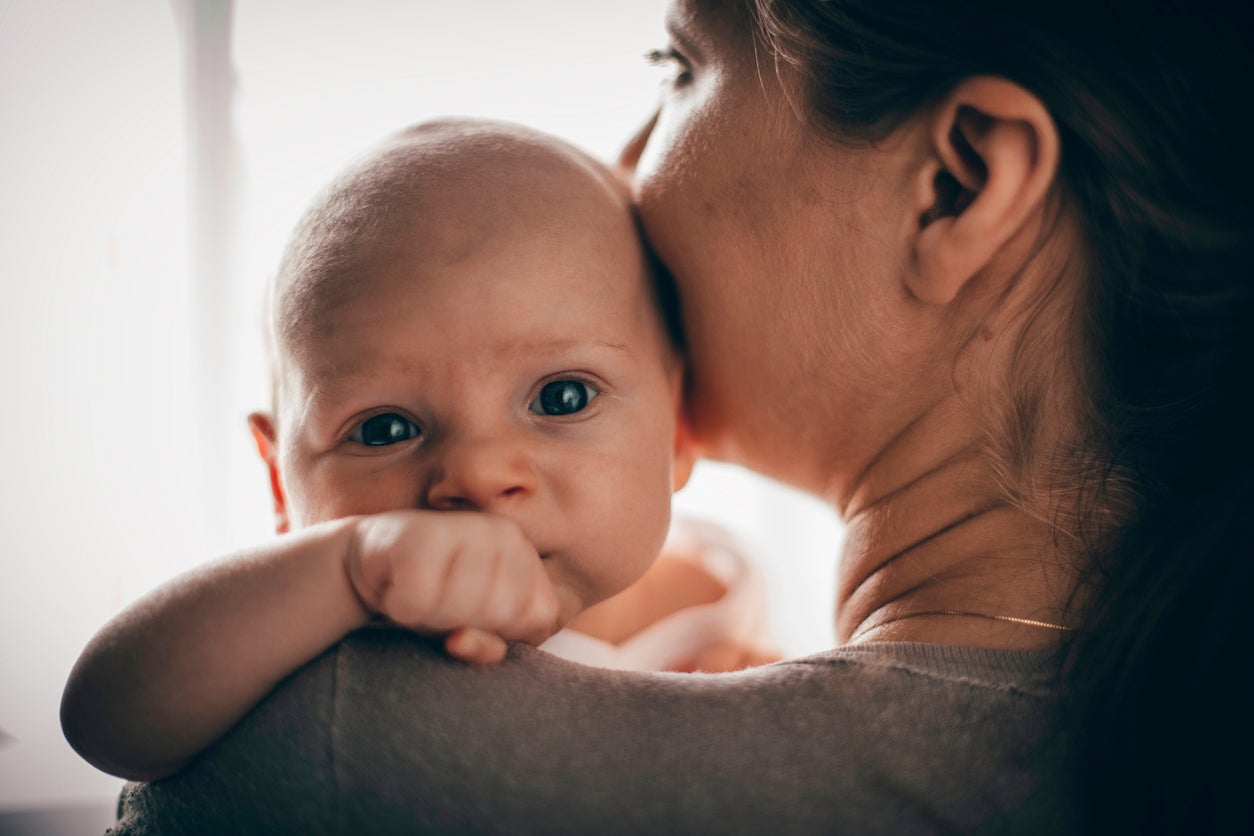The government is failing new mothers – digital perinatal consultations cannot become the norm
Poor perinatal mental health is very real, and support cannot be replicated on Zoom or over the phone. The government must fund and resource home visits now


Like any mother, I worry for my children and their future. One unexpected benefit of working from home has been that I have spent a great deal more time with my children than I otherwise would have done.
The constant feeling that they don't get enough of my time and attention always hangs over me, so it has been wonderful being able to turn off Zoom at the end of the day and come straight downstairs to be with them, to be able to spend time cooking with them and reading to them instead of hanging around in parliament for late votes.
From an early age, I always knew I wanted to be a mum. When I gave birth to my first child 12 years ago, I overcame the early challenges of motherhood thanks to a supportive partner, a helpful family, professional health visiting support and a peer group of new mothers.
To have been denied just one of these would have been hard. To have been denied all would have been devastating. Yet that has been the reality for far too many new mums and pregnant women during the past year.
Unable to see their families or friends or meet up with their antenatal groups except on Zoom, the three lockdowns and restrictions at hospitals have exacerbated anxiety and feelings of loneliness. Until December, pregnant women in the pandemic were not even allowed to have their partners at their side when they gave birth or during prenatal appointments; expectant mothers coping with high-risk pregnancies have had to attend vital scans on their own.
That is why I worked with the House of Commons to run a survey asking for new and expectant mothers to share their experiences during the pandemic. More than 11,000 women took part, and the responses were incredibly concerning.
Read more:
The overwhelming theme was how difficult isolation has made the experience of giving birth and caring for a newborn. As Zilia from southeast England wrote: “All appointments attended alone and in sterile conditions, childbirth alone, no visitors in hospital, no family able to meet your newborn and help you out thereafter. Just the most isolating and lonely experience I’ve ever been through.”
Her story is typical. The State of Health Visiting Survey 2020 contained some harrowing findings. A reported 81 per cent of health visitors had an increase in perinatal mental illness, while 76 per cent reported an increase in the use of food banks and speech/communication delay.
Other Covid-19 factors have worsened the experience for new mothers. The industries worst hit by lockdown are often female-led. Twenty per cent of mothers lost their jobs during the pandemic, compared with just 13 per cent of fathers. The closure of schools has left many mothers trying to juggle homeschooling with looking after a newborn.
Not only has the pandemic disproportionately impacted women in their professional lives, but the restrictions we’re now living under have also severely limited our access to healthcare. As resources are prioritised towards emergency admissions, this has led to an increase in the use of digital and telephone consultations in perinatal care.
My own mother was a health visitor for many years, so from a young age, I became aware of just how significant a friendly knock on the door could be to an overwhelmed new mother. A trained and experienced health visitor can observe mother and baby and identify whether additional support is needed. It is a kind of support that is vital for new mothers in the first weeks and one that simply cannot be replicated on Zoom or over the phone.
The Maternal Mental Health Alliance and the Centre for Mental Health recently ran a survey into the impact of Covid-19 on maternal mental health services in voluntary and community sector (VCS) organisations. The results highlighted a decrease in the statutory services that are available as a result of the redeployment of health visitors and disruption amongst GPs and midwives. VCSs are now having to fill these gaps, creating yet more pressure on already stretched capacity.
So, what can be done? The first step has to be addressing these shortfalls in provisional capacity. We cannot expect quality service provision when health visitors are spread so thinly. The pandemic notwithstanding, this was a service already chronically underfunded, with the health-visiting workforce having seen a 31 per cent decrease since 2015. The State of Health Visiting Survey also found that 65 per cent of health visitors had caseloads with more than 300 children under five years old, and 29 per cent with caseloads of more than 500 children. The optimum maximum caseload for effective practice is 250 children.
We also need better mental health support for all ages and stages, and better training throughout. But providing this support to new mothers should be the priority, because of the impact their poor mental health can have on the development of their children and the rest of their family.
Moreover, the Royal College of Midwives has found that there is currently a shortage of 3,000 midwives. More investment and training are therefore needed so that our midwives can provide the best possible mental health support to women throughout pregnancy and during postnatal care.
The long-term societal cost of perinatal mental ill-health is estimated at £8.1bn annually for each one-year cohort of births. About three-quarters of this cost is the cost of the impact on the child. The financial value of early interventions to support struggling families is clear, but there is also a very human value of building loving and supportive families.
The government must therefore fund and resource home visits by health visitors to all new mothers so that we can properly address the issue of maternal mental health.
It must ensure that digital consultations do not become the norm and make available whatever financial backing our midwives require to do their job effectively. I have written to Nadine Dorries, minister for mental health, suicide prevention and patient safety, to urge her to do all she can following her welcome contribution to the Westminster Hall debate. The time for rhetoric has long gone; only action will now suffice.
We have the structures and the mechanism to provide this support already through the health visiting service, but unless the government commits to it the funding it needs, we are failing future mothers and restricting the care they will be able to provide to their newborns. Poor perinatal mental health is a very real problem and one that urgently needs addressing. The government must act now.
Sarah Olney is the Liberal Democrat MP for Richmond Park
Join our commenting forum
Join thought-provoking conversations, follow other Independent readers and see their replies
Comments
Bookmark popover
Removed from bookmarks